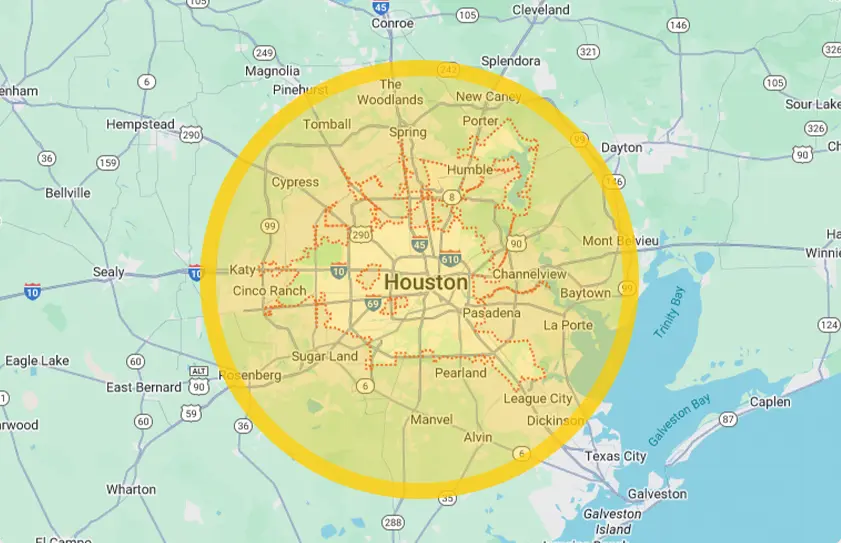Deciding to finally install a central air conditioner is a big step. If you’ve taken the plunge, congratulations! But now, you might be asking: What size central air conditioner do I need? It’s not a one-size-fits-all scenario. Getting the right size is essential for comfort, efficiency, and cost-effectiveness. There are steps you can take to determine the perfect central air conditioner size for your home.
Why Proper Sizing Matters
Getting the right size central air conditioner is vital. An oversized unit will cool your home quickly but will frequently cycle on and off, leading to higher energy bills and uneven cooling. An undersized unit, on the other hand, will struggle to maintain a comfortable temperature, running continuously and wearing out faster.
Impact on Energy Efficiency and Costs
An improperly sized air conditioner can significantly affect your home’s energy efficiency. If you’re wondering how to calculate air conditioner size for a house, knowing the correct size can help you save on operating costs and reduce wear and tear on the system. A well-sized unit will have a balanced seasonal energy efficiency ratio (SEER), guaranteeing optimal performance.
So, what size central air conditioner do you need? It’s about finding that sweet spot where your AC unit operates efficiently without straining itself.
How to Calculate Air Conditioner Size for a House
Your central air conditioner size needs to be perfect for your home. This involves considering factors like insulation, window types, and sun exposure — all of which play vital roles. So, What size central air conditioner do you need?
Let’s break down the process of determining the ideal central air conditioner size for your space.
Square Footage of Your Home
The first step in figuring out what size central air conditioner you need is to look at your home’s square footage. Typically, you need about 20 BTUs (British Thermal Units) per square foot of living space. However, this is just a starting point.
Manual J Calculation
For a more precise calculation, HVAC professionals use the Manual J Calculation. This takes into account:
- Square footage
- Number of windows and their style (older style windows or newer style windows)
- Insulation quality (poorly insulated homes need more cooling power)
- Sun exposure (more sun exposure means higher cooling needs)
- Ceiling height
- Heat-generating appliances
Room Size and Layout
Consider the size of each room and its layout. Larger rooms or rooms with high ceilings might need more cooling power. Also, if some rooms receive more sun, they may require additional cooling capacity.
Climate and Weather
The local climate plays a big role. Homes in hotter climates, like Houston, will need a more powerful air conditioner compared to homes in cooler regions.
Factors Influencing Central Air Conditioner Size
The size of your air conditioner is affected by multiple factors. Taking these into account will help you avoid sizing issues.
Insulation and Windows
Homes with poor insulation or older-style windows will need a larger system to compensate for heat loss. Conversely, newer, energy-efficient windows and good insulation might allow for a smaller unit.
Sun Exposure and Room Use
Rooms that receive a lot of sun or are used for heat-generating activities (like the kitchen or laundry room) might need more cooling power. Additionally, rooms with less sun exposure or those used less frequently might not need as much.
Home Layout and HVAC Design
An open floor plan might require a different approach compared to a home with many small, enclosed rooms. The layout will influence airflow and cooling efficiency.
Why You Need a Professional Assessment
While DIY calculations can give you a ballpark figure, an HVAC professional will conduct a thorough residential load calculation. This takes into account factors like both heating and cooling needs, your home’s insulation, and even heat loss through windows and doors.
Benefits of a professional evaluation include:
- Accurate Sizing: Professionals use advanced tools and methods, like the Manual J calculation, to determine the right size air conditioner for your needs.
- Efficiency: A correctly sized air conditioner system will run more efficiently, saving you money on energy bills.
- Longevity: A correctly sized air conditioner doesn’t have to overwork; this can prolong its lifespan.
- Comfort: With proper air conditioner sizing, you can enjoy consistent, even cooling throughout your home.
The Bottom Line
Finding the right central air conditioner size might seem intimidating, but with the right approach and professional guidance, you can make an informed decision that keeps your home comfortable and energy-efficient. Remember, it’s not just about square footage; it’s important to consider all the factors unique to your home for the best results.
Ready to Install? Contact A1 Plus Electrical, Heating and Air!
“What size central air conditioner do I need?” If you were asking this question, hopefully, you now have a clearer path to finding the correct answer. At A1 Plus Electrical, Heating and Air, we specialize in AC installation in Houston, TX, and can help you choose the perfect system for your home.
Remember, even the best-sized air conditioners require regular maintenance to stay efficient. At A1 Plus Electrical, Heating and Air, we also provide you with an AC tune-up in Houston to keep your system in top shape.
Contact us today to install your new air conditioner system!



